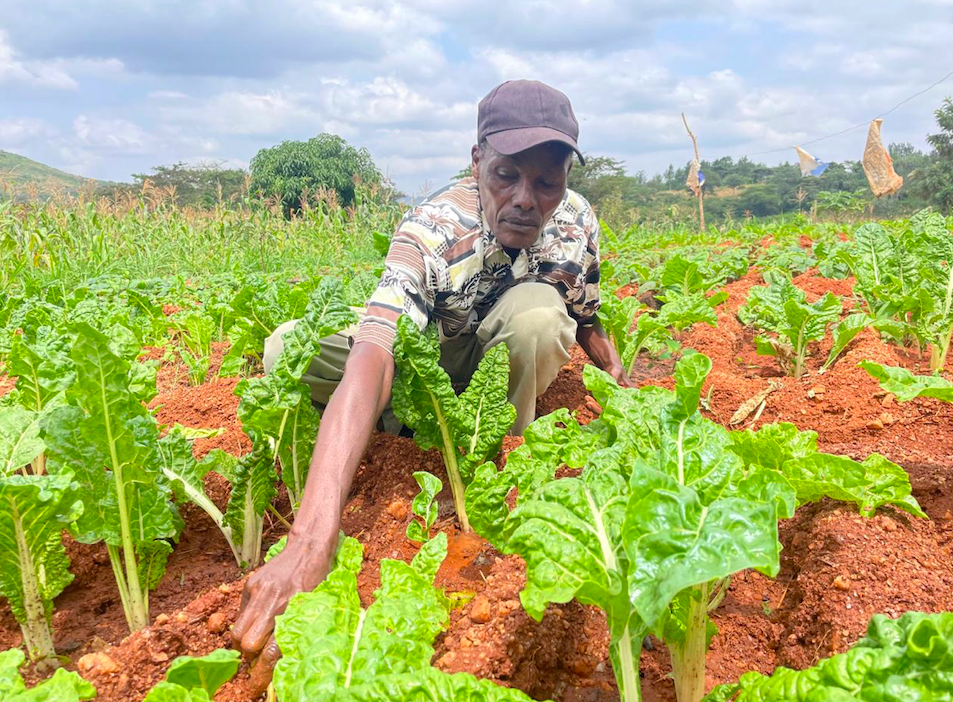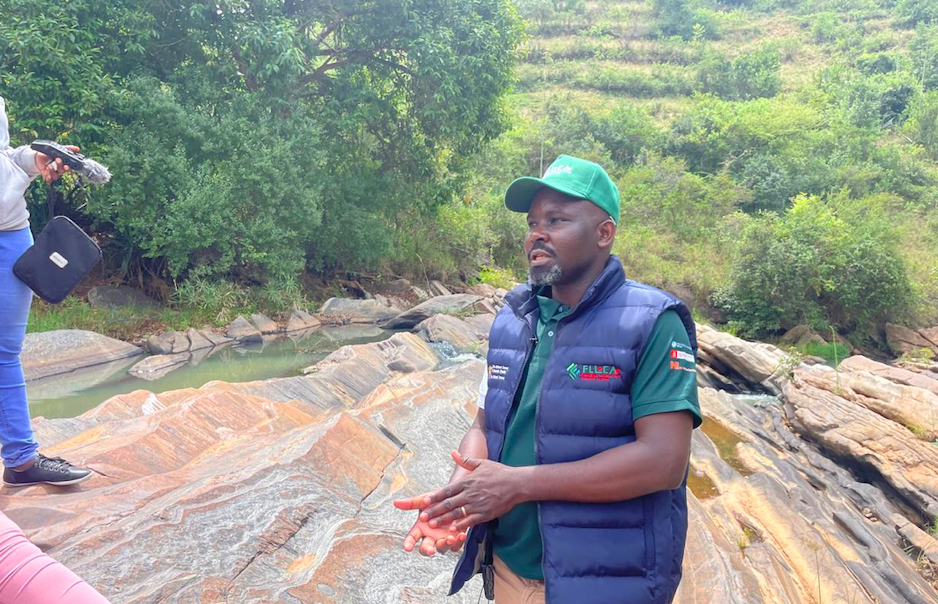

Richard Kimeu tends to his spinach/Gilbert Koech
A few years ago, Richard Kimeu’s four-acre farm was bare, and farming had become nearly impossible due to prolonged droughts and chronic water shortage.
Kimeu is among about 300 farmers who have benefited from the Wautu Kyangaati sand dam water project.
The Sh16 million project has given residents hope and are now planting and harvesting produce, selling surplus to the local market.
The project, which is nestled in Kaiti subcounty in Ilima ward, has benefited 8,773 people and was funded by Financing Locally Led Climate Action (Flloca).
It seeks to strengthen local resilience to the impacts of climate change, natural hazards and other shocks by building local capacity to plan, budget, implement and monitor resilience investments.
This is in a way that promotes collaborative partnerships between communities and national and county governments.
The programme focuses on capitalising on the National and County Climate Change Funds and building county-level capacity for planning, budgeting, reporting and implementing local climate actions in partnership with communities.
It is being implemented by the national government in partnership with county governments.
In Ilima ward, the project consists of the construction of one sand dam, reinforced concrete with a 100 cubic metre intake sump tank and a solar system for pumping the water.
A 100 cubic metre masonry reservoir water tank was also built at the Kwa Chief area.
Some 5,000 assorted high-value tree seedlings (avocado and citrus) were distributed together with the planting of 400 assorted riparian tree species.
Kimeu said before, he would get water from as far as a kilometre away, something that almost made him give up farming.
Ilima Ward Climate Change Planning Committee Chairman Kennedy Wambua said the project was initiated after consultations in early 2020.
Wambua said the transformative project was handed to the contractor on November 27 last year and they started work in March this year.
He said county systems are being used to channel the funds.
“It means even these programmes are already budgeted for within the county budget, because it is money that is coming from the national government as a condition of grants,” Adino said.
She said the project targeted 1,200 community members.
In 2023, a climate risk assessment was done with the community, where they identified and developed a ward climate action plan where vulnerable areas were prioritised.
The county has also put in place regulations as part of a wider plan to adapt to impact of climate change.
She said two per cent of the county budget is allocated towards climate change funds.
To ensure sustainability, Kamusa said they have in place sustainability committees.
“We have set a budget to train the project sustainability committee on how they are going to operate this project and how they are going to run it,” she said.
Civil Society organization focal point for Fllocca in Makueni county Felix Muendo said county governments have been very intentional in engaging communities.
Muendo urged counties to put more resources into climate actions and climate resilience in their budgets.














